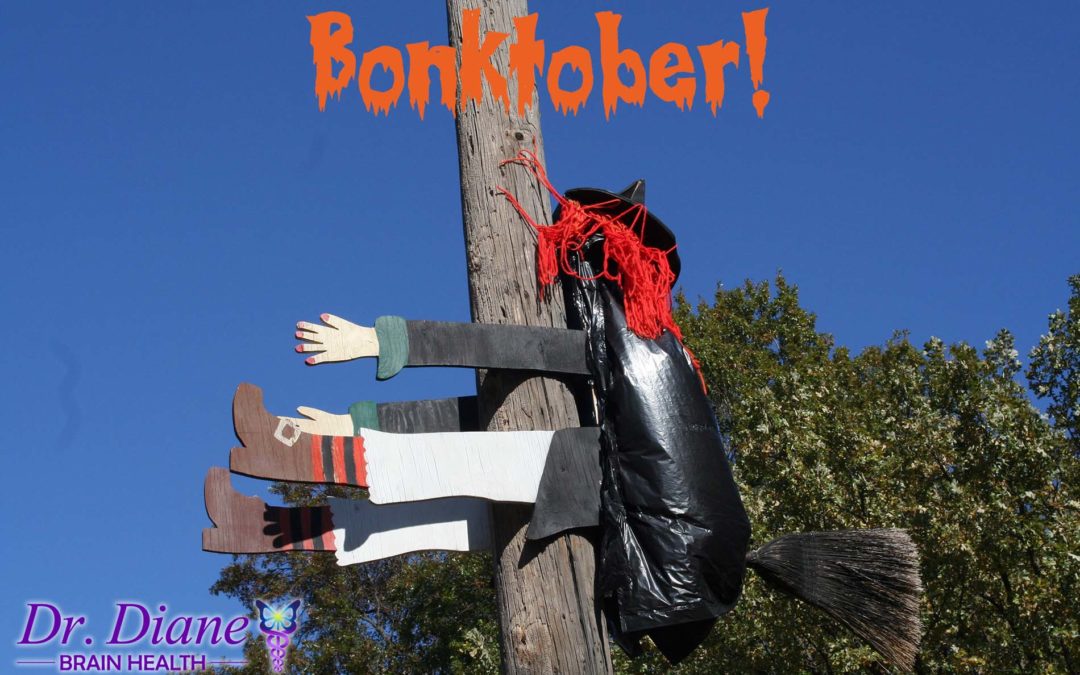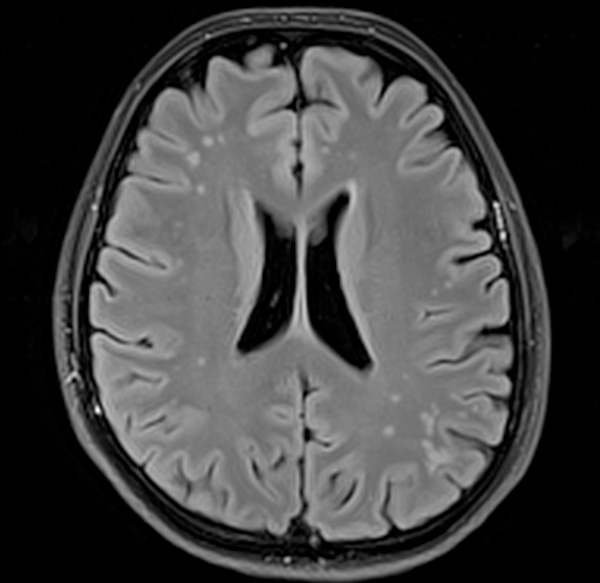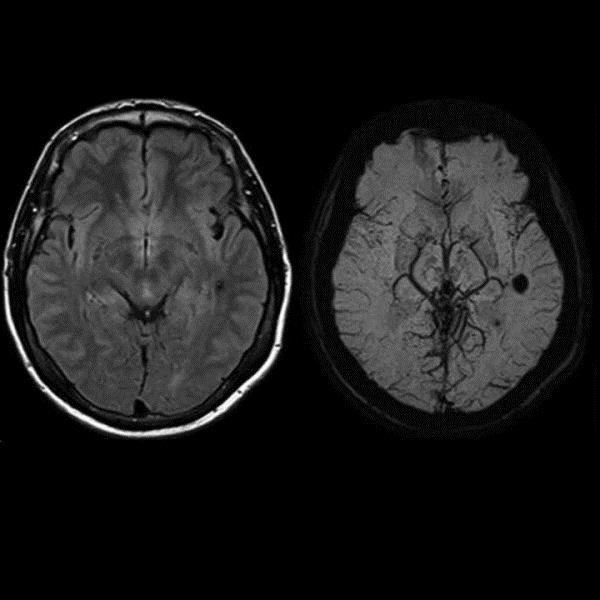BonkTober
Anniversary of my 5th Concussion & Litigation Advice
BonkTober Morning
October 15, 2020, started as a typical workday. I met with my webmaster in the morning to discuss changing the focus of the Dr. Diane® Brain Health website. Following this meeting, I met with a new forensic client and her husband. This client had suffered a traumatic brain injury and was involved in litigation for it. Along with being a neuropsychologist, and survivor of multiple brain injuries, I have been a forensic psychologist for over 40 years. We met to discuss the specifics of us working together to support her case with a court date of February 2021.
These morning meetings went exceptionally well, and I was having a productive day. After lunch, I decided to go to Newburyport to do my afternoon walk. This walk is a part of my recovery program for Stage 2 cancer (Lymphoma).
The Incident
On my drive to Newburyport, I saw a pedestrian waiting to cross the road. The pedestrian pushed the crosswalk button, and the traffic lights started flashing, indicating it was safe to cross the street. The car in front of me stopped, and I stopped. However, the truck behind me did not stop and rear-ended my car. My neck snapped and I instantly saw stars and became extremely nauseous. Within moments the driver of the truck that hit me came over and asked if I was okay. I told him I was not well. We both pulled our vehicles over and exchanged information. I immediately called one of my staff members, and she came over to follow me home. When I got home, I called my Primary Care Physician to determine which hospital I should go to for an evaluation. I needed to be very cautious since I had Stage 2 cancer during the pre-vaccination period of the Covid-19 pandemic. They told me which hospital to go to, and I was seen that day.
The Hospital
The doctors did a CT scan (also know as a CAT scan), and from the results, they did not see a brain bleed. I was diagnosed with a concussion and given instructions to go home and rest. They also asked me if I knew that I had a brain tumor called Meningioma. I explained that I had brain surgery in 1990 for a cerebral bleed, and in 2008 they found this brain tumor.
Life Before BonkTober 15, 2020
My last concussion was in 2010. I completely recovered from that concussion and was able to resume a productive life. I went on to co-author the book “Coping with Concussion and Mild Traumatic Brain Injury.” I also resumed managing a full caseload of clients/patients and continued to be an International and National Keynote Speaker. And as mentioned above, I was able to resume consulting as a forensic neuropsychologist.
Life After BonkTober 15, 2020
The car accident and the resulting concussion on October 15, 2020, changed my life. I was dysfluent again (problems speaking and finding words), and I noticed my heart was often racing. My resting pulse rate was high at 135. I had difficulty reading and what I was able to read, I could not retain. Working with my patients and clients became difficult because I had trouble remembering information and memory recall. I also experienced muscle weakness and extreme fatigue.
As a forensic neuropsychologist, I knew the importance of getting baseline testing done before any form of treatment. I give this advice to all my clients who have any symptoms from a traumatic brain injury, including concussion, a mild traumatic brain injury (mTBI).
Tests & Evaluations
I strongly recommend these steps to anyone who suffers a traumatic brain injury (TBI), including concussion (mTBI):
- Must be seen and evaluated by your Primary Care Physician.
- You must see a neurologist who has training in and an understanding of concussions (mTBI) and traumatic brain injury (TBI).
Important Note: NOT ALL neurologists have extensive training in this area. There are many people who have been sent home saying they were fine, only to have an expert in the field see something a typical neurologist wouldn’t.
Legal Issues:
- You must see a neuropsychologist or a forensic neuropsychologist, depending on legal issues.
- Suppose your injury is NOT the result of an accident that would involve legal action. In that case, a clinical neuropsychological test and report should be done.
- Suppose you have been in an accident, and there is legal action. In that case, it is IMPERATIVE to see a forensic neuropsychologist who will do testing and write a forensic neuropsychological report.
Brain Scans
SWI Brain Scan (Gray Matter)
SWI (SusceptibilityWeighted Imagery) is a type of MRI that can access the brain’s structure. This scan is the international brain assessment for a Traumatic Brain Injury (TBI). The standard T3T4 MRI is not as precise.
DTI Brain Scan (White Matter)
DTI (Diffusion Tensor Imaging) is a type of scan that can access the structure of the nerves and wiring of the brain. This scan is an international standard for assessing a Brain Injury.
Brain Functioning Scan
There are two methods to see how the brain is functioning. One is Quantitative EEG (QEEG), and the other is the SPEC scan. Both are highly effective; however, a court of law accepts the results of a QEEG.
Speech Evaluation
- Speech and Language Pathologist: Evaluation of speech, language, word-finding, and cognition.
Physical Injury Evaluation
- Bodily Injuries: If you have injuries, I recommend that you see an Orthopedic physician and/or receive an assessment by a Physical Therapist (PT) or Chiropractor to evaluate motor functions.
Other Symptoms
- Other symptoms: In my specific situation, because my heart was racing, I went to the Cardiologist. They discovered that because of my concussion, I now have tachycardia that requires medication to control.
Post-Concussion Symptoms
Ongoing concussion symptoms are known as Post Concussion Syndrome.
As of today, my two biggest complaints are still my inability to recall information (I joke that it is NOT because I’m a senior citizen), and my debilitating muscle weakness and extreme fatigue, that causes me to limit my activities and require a nap every day.
My Treatment Plan
- Medication for tachycardia
- Neurofeedback 2x per week for healing and normalizing brain function.
- Brain Health Diet – (see recipes)
- Exercise– limited to walking
- Chiropractic and Physical Therapy
- Whole food supplements and other supplements, such as Omega 3 and CQ10.
Lastly, as I was about to write this blog, the marketing specialist on my team called me and told me that she slipped and fell in her shower and got a concussion. She was asking for help and advice, and after I provided it, I said to her, “Welcome to BonkTober.”
Future
I will continue to treat my post-concussion syndrome (PCS) symptoms in hopes that I can once again resume living as I did before October 15, 2020. I sincerely hope this blog has provided you with some help and hope of regaining your life again. As well, I hope post-injury legal suggestions were helpful.
Dr. Diane Can Help!
If you suffer from Post Concussion Syndrome and need help, consult with Dr. Diane®. Dr. Diane® and her team of brain health experts.





